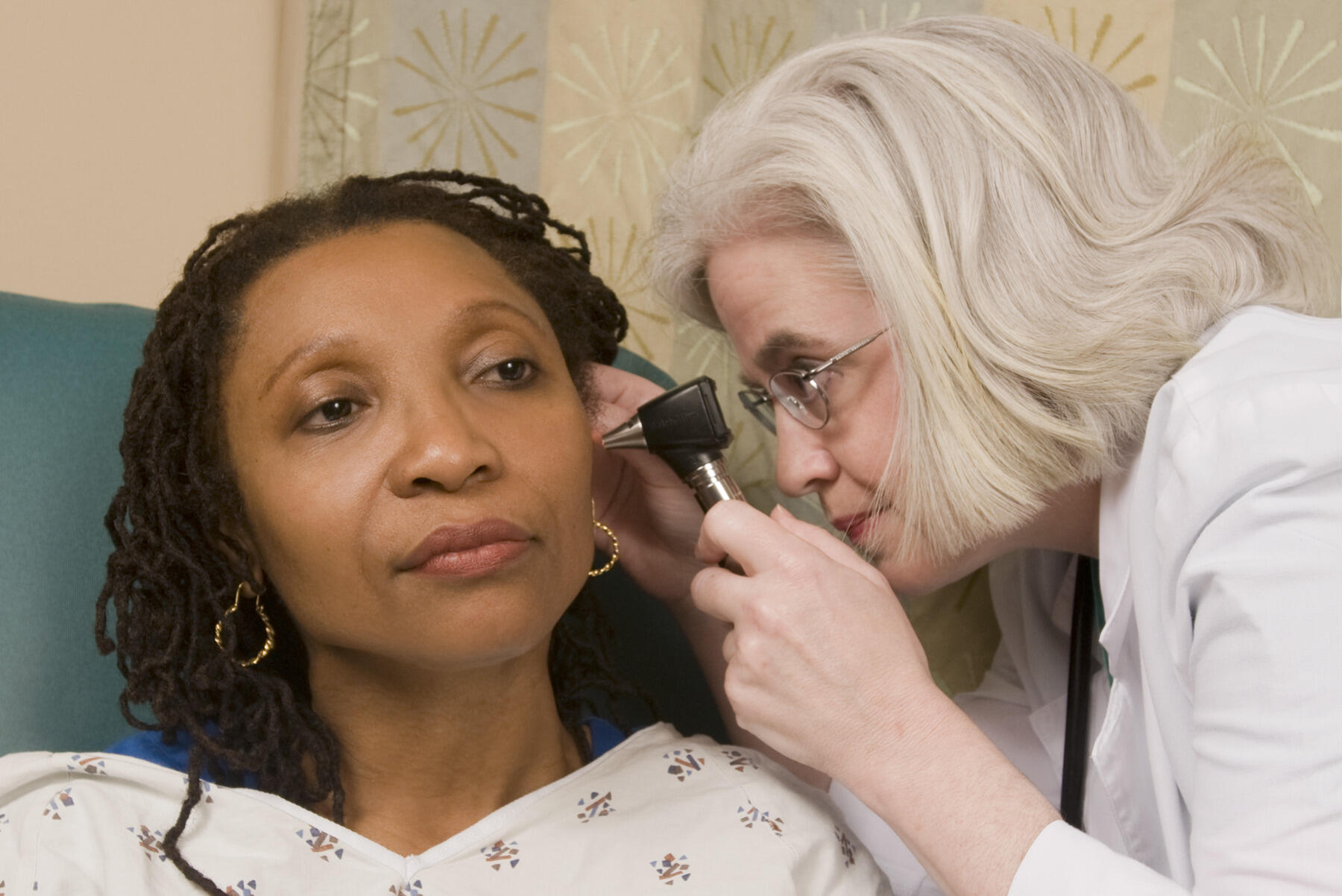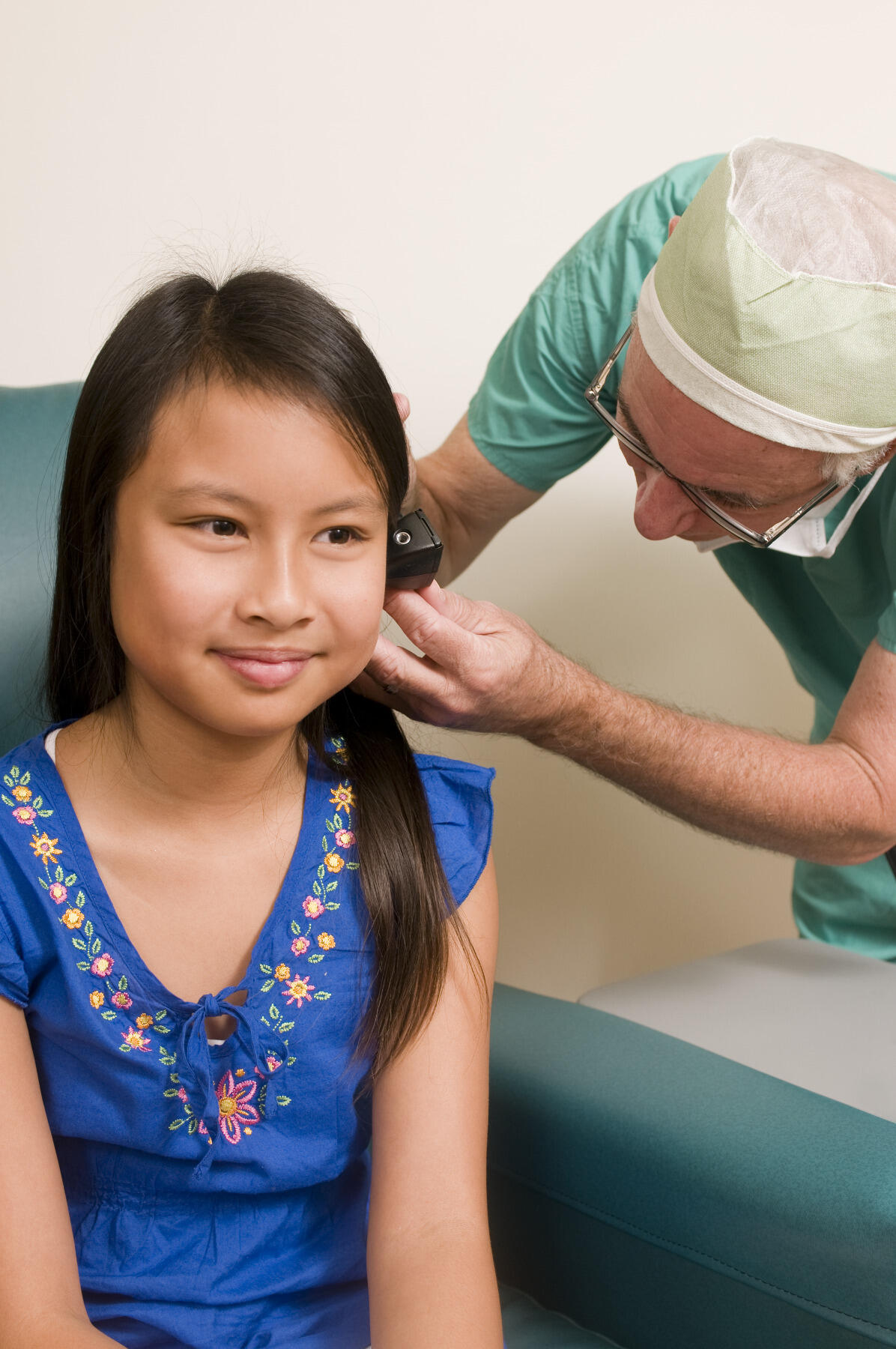May 5, 2016
VCU Health expert discusses the causes of hearing loss and ways to prevent it
Share this story

The inner ear is no larger than a pencil eraser in circumference and the bones in your ear are the smallest bones in the human body. “They could all fit together on a penny,” said Christine Eubanks, Ph.D., of the VCU Health Department of Audiology. Yet, despite its small size, the ear and hearing plays a large role in social interactions, comprehension and even balance.
The American Speech-Language-Hearing Association has designated May as Better Hearing & Speech Month and on May 10 at noon Eubanks will speak about hearing loss at the Community Health Education Center in the Gateway lobby of VCU Medical Center. Eubanks’ talk will focus on communication needs in health care settings. The event will also feature a display of books and resources about hearing loss, as well as an exhibit of antique hearing aids and artifacts related to audiology.
In advance of her talk, Eubanks answered questions about hearing loss causes, prevention strategies and more.
What causes hearing loss?
Contrary to popular belief, the majority of people with hearing loss are under the age of 65. About two to three out of every 1,000 children in the U.S. are born with a detectable level of hearing loss in one or both ears. Newborn hearing screening is mandated in Virginia, and early detection and amplification can prevent speech, language and cognitive delays. Ear infections are the reason for the majority of doctor’s visits, and often cause temporary hearing loss that can be mistaken for behavior or learning problems. Also, medications as common as aspirin can cause damage to the ear in large enough doses.
The modern world is a noisy place.
The No. 1 cause of hearing loss is exposure to excessively loud sounds. According to the Better Hearing Institute, one in every 14 Generation X-ers already has a hearing loss. One in four workers exposed to high levels of noise will develop a hearing loss — and not just factory workers. Dentists have a high risk of noise-induced hearing loss as well. The modern world is a noisy place, where we are exposed to traffic and construction noise, as well as self-generated noise from lawn mowing, power tools and recreational sports. But the source that is most problematic and that we have the most control over is music. Sitting in front of the speakers at a concert can expose you to 120 decibels, which will begin to damage hearing in less than eight minutes. In recent years the increased use of earbuds has become a particular problem since they do not block environmental sounds, causing listeners to turn up the music even louder.
Lastly, age-related hearing loss is common, but not inevitable. However, the damaging effects of noise and toxins can add to any existing loss.

How can hearing loss be prevented?
One-third of permanent hearing loss can be avoided. It is important to limit or avoid noise, use hearing protection and be aware of symptoms of hearing problems such as ringing ears. If you have teenagers, convince them to wear headphones that go over the ears and to keep the volume lower. If you can hear it leaking out, it’s too loud.
How can one detect hearing loss in themselves and others?
Since most people with hearing loss hear well in a quiet environment like a doctor’s office, it can be virtually impossible for your general physician to recognize the extent of your problem. It is up to each individual and his or her family to be aware of communication difficulties. If you feel that you or your significant other are “hearing but not understanding” (particularly in background noise) and withdrawing from conversations and/or avoiding interactions with others, it’s time to get your hearing tested.
Does hearing loss typically affect one ear or both?
Most types of hearing loss affect both ears fairly equally, and about 90 percent of patients with hearing loss are in need of hearing aids for both ears. A sudden or dramatic change in hearing, especially in one ear, requires urgent medical evaluation.
How is hearing loss treated?

Smiling and nodding your head when you don't understand what is being said makes your condition more apparent than the largest hearing aid. Digital hearing aids are dramatically better than the analog aids that earlier generations may have worn. If the loss is so great that hearing aids don’t help, a cochlear implant can bypass the damaged inner ear and provide usable hearing to both children and adults. The great majority of amplification users report improvements in their quality of life.
Other than hearing, what is the function of the inner ear?
Your ears also help you keep your balance. Your eyes and ears work together to send signals to your brain about where you are in space. Inner-ear problems can send mixed signals, which cause the brain to create the illusion of movement. Your audiologist and ENT physician will work together to determine the cause of your problem, and medication and/or physical therapy can help control dizziness.
For hearing test appointments at Nelson Clinic or Stony Point, please call 804-828-0431. The VCU Audiology website is http://www.audiology.vcu.edu/.
Subscribe to VCU News
Subscribe to VCU News at newsletter.vcu.edu and receive a selection of stories, videos, photos, news clips and event listings in your inbox.









